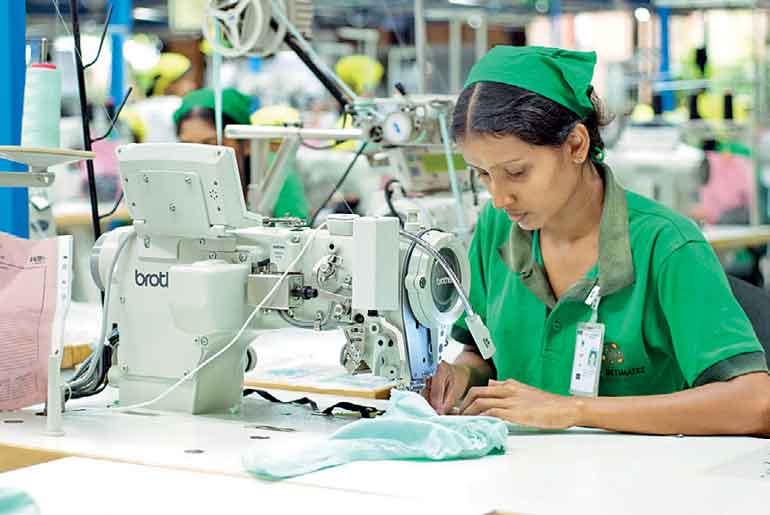Saturday Feb 14, 2026
Saturday Feb 14, 2026
Tuesday, 22 April 2025 03:40 - - {{hitsCtrl.values.hits}}

By Charumini de Silva
 |
| SLAEA Chairperson Rajitha Jayasuriya |
The country’s apparel industry, the largest export sector and a cornerstone of foreign revenue, is bracing for heightened volatility following the US’s recent imposition of a 44% reciprocal tariff. Although the blow was temporarily softened by a 90-day relief window, concerns among industry leaders are growing over the medium-term implications on order volumes, supply chain stability, and global competitiveness.
Sri Lanka Apparel Exporters Association (SLAEA) Chairperson Rajitha Jayasuriya affirmed the immediate fallout has not included mass cancellations of orders, though selective buyers have responded with caution.
“We have not seen widespread cancellations at this stage; some buyers have requested for manufacturers to partner on the 10% tariff, while some have asked for a temporary hold on manufacturing until there is greater clarity on the implications of the proposed US tariffs,” she told the Daily FT.
Although these requests remain limited for now, she said it reflects a deeper caution rippling through global trade networks – one that could materially affect future procurement strategies and production cycles.
Jayasuriya warned that this climate of uncertainty is already disrupting supply chain forecasting. “The heightened uncertainty in global trade is creating significant volatility in forecasting accuracy, which is already affecting supply chain planning and procurement decisions. This unpredictability is causing ripple effects throughout the value chain,” she added.
She also noted that the industry is closely monitoring broader signals from the US economy.
“As an industry, while the US tariff policy is the immediate concern, a potential slowdown in the US economy more broadly could also dampen consumer demand, which would impact order volumes,” Jayasuriya opined.
Stitching...
The Association is also preparing for the possibility of a broader economic slowdown in the US, potentially a recession as noted by economists, which could place further strain on demand.
“In such a scenario, Sri Lanka’s apparel sector will likely face negative impacts on projected growth in the coming quarters, despite its strong fundamentals,” she stressed.
The SLAEA Chairwoman said alongside its apex body, the Joint Apparel Association Forum (JAAF) is closely watching these developments and remains in continuous dialogue with the Government to support its ongoing diplomatic engagement with US trade officials.
“Our immediate priority is to continue engaging proactively with the Government on both the US tariff issue and the Generalised Scheme of Preferences Plus (GSP+) renewal process. The industry remains fully committed to supporting and strengthening the Government’s negotiation efforts, including contributing sectoral insights and data to assist in bilateral discussions,” she added.
Looking ahead, Jayasuriya said the SLAEA’s strategic focus will remain on stabilising export relationships, while building resilience across the supply chain. “We are working closely with customers to retain committed orders, maintaining transparency and consistent communication in the face of ongoing uncertainty.”
She emphasised that both major exporters and small and medium-sized enterprises (SMEs) must be supported as trade headwinds intensify.
“It is imperative to work with both large exporters and SMEs, who are particularly vulnerable to shifts in trade conditions. We must also ensure that our overall ease of doing business improves so these stakeholders are not left behind in our push to weather this storm, and work towards their continued participation in and contribution to the sector’s long-term resilience,” Jayasuriya explained.